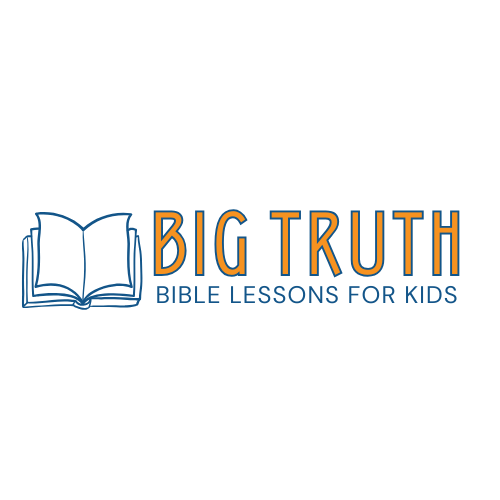I'm going to show my age here for a moment with a "Friends" quote. Early on in the show, maybe even season 1, the girls were sitting around the apartment and discussing how they had no direction or plan for their lives. Monica asked, "Phoebe, do you have a plan?" and Phoebe's response was, "I don't even have a pl."
So, here's me asking you, "when it comes to children's ministry, do you have a plan?"
When I first got started in children's ministry, a fellow children's director and myself were frustrated with the Biblical illiteracy in our churches and with the curriculum choices we were using. We felt like our kids were being spoon fed the same Bible stories, the same memory verses over and over again. We decided it was time to make a plan to ensure that our kids were learning the whole counsel of Scripture.
So, we decided to each spend a week in prayer before meeting and then sit down with a blank piece of paper. At the top of the page we wrote.... WHAT DO WE WANT KIDS TO KNOW WHEN THEY MOVE TO YOUTH GROUP????
Then we started a list. We listed truths we wanted them to understand, verses we wanted them to memorize, learning the books of the Bible, etc. As we took a step back and looked at our list we realized that many of the things fit into 3 different categories; (1) systemic theology, (2) Biblical theology and (3) Christian living.
We'll dive deeper into each of these categories in future posts, but for now what we meant by these were:
(1) Systematic Theology - we wanted kids to be familiar with the big doctrines of Christianity and see what the Bible has to say about various topics - who is God, who is Jesus, who is the Holy Spirit, who is man, what is sin, how we are saved, etc.
(2) Biblical Theology - we wanted kids to understand the overall story of the Bible and see how the Bible is one big story of God's redeeming of His people.
(3) Christian Living - we wanted kids to know how to read and study the Bible, we wanted them to understand the gospel and how to share it, we wanted them to know the books of the Bible and where to find various stories in the Bible, we wanted them to know what it means to be a part of a church, etc.
Out of this list, we started thinking about when various parts of this list could be taught. We thought about what age groups should know / be taught which things and and in what settings. We scheduled out our Sunday School, children's church and mid-week classes and developed a 3 year rotation. It was out of this list and this conversation that the curriculum behind Big Truth Bible Lessons for Kids was formed. Every lesson I write and publish fits into one or more of these categories.
Ever since then, this plan has been the backbone of both my teaching and my writing ministry. Obviously curriculum has changed over the years and the original plan has been adapted, but here is a breakdown of that plan and how it can be taught using materials currently available on this site.
YEAR 1 -
Elementary
-
Focus on the Bible - what it is, how it all fits together, learning the books of the Bible
-
teaching through the Bible one book at a time
Preschool
-
Learn the Bible through songs and activities
-
Sing and Play Creation - 4 weeks
-
Sing and Play Christmas - 4 weeks
-
Sing and Play Easter - 8 weeks
-
Sing and Play Attributes of God - 26 weeks
Toddlers (age 0-2) - every year repeat Sing and Play Big Bible Truths
YEAR 2 - Elementary
-
Systematic Theology
-
Learning what the Bible says about different things
-
Preschoolers do the same Bible passage, but focus on learning the story, not necessarily the big truths. [EX: for preschoolers the entire unit on man may repeat the same truth that all have sinned.]
YEAR 3 - Elementary & Preschool
-
Biblical Theology
-
Learning the storyline of the Bible/ God's Story of Redemption
-
The Greatest Story Ever Told Elementary and The Greatest Story Ever Told Preschool
-
These 26 lessons would then be supplemented with the following topical lessons
-
Big Bible Words - 8 weeks
-
I Am - 6 weeks
-
Remaining weeks fill in with topical/ seasonal lessons on Christmas, Easter, Valentines, Mother’s/ Father’s Day, etc.
-
Use the summer to teach through a book of the Bible. [Some I have done are John, Luke & Psalms... and many of these will be available in the future.]
-
Preschoolers repeat the Christmas & Easter lessons from year 1
You're welcome to use my plan and rotate through these big topics. In this way all of the children in your church will be exposed to all of Scripture every 3 years. Or, do what we did 20+ years ago and get yourself a piece of paper to formulate your own plan.
Benefit of a plan for children - Since children leader differently at each age, it's so helpful for them to hear the same things at age 4, 7 and 10.
The other huge benefit of having a plan is for you and your teaching team. It's so helpful not to have to plan every month or quarter and constantly think about what's next.
If you find yourself agreeing with Phoebe and realizing you don't even have a "pl" I'd love to help you develop your plan for children's ministry in your setting and help you think through curriculum options. Please contact me with any questions you may have.
In Him,
Bethany Darwin

